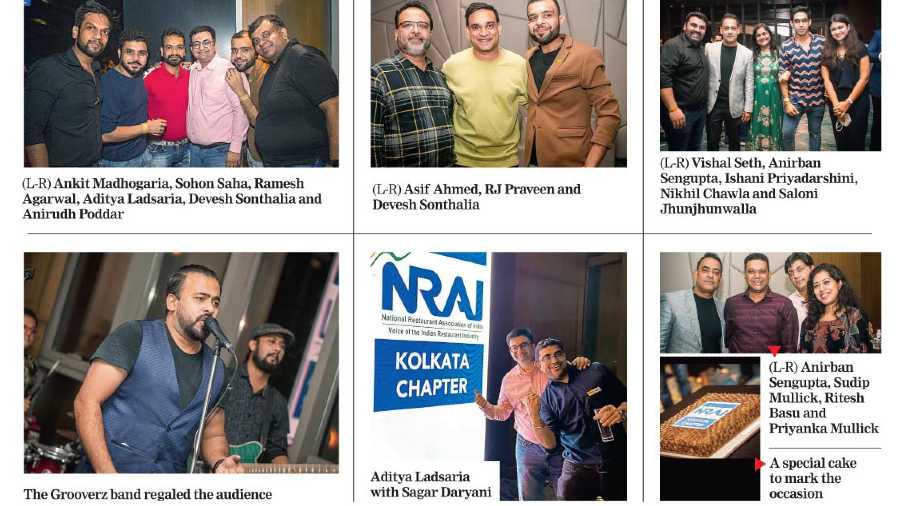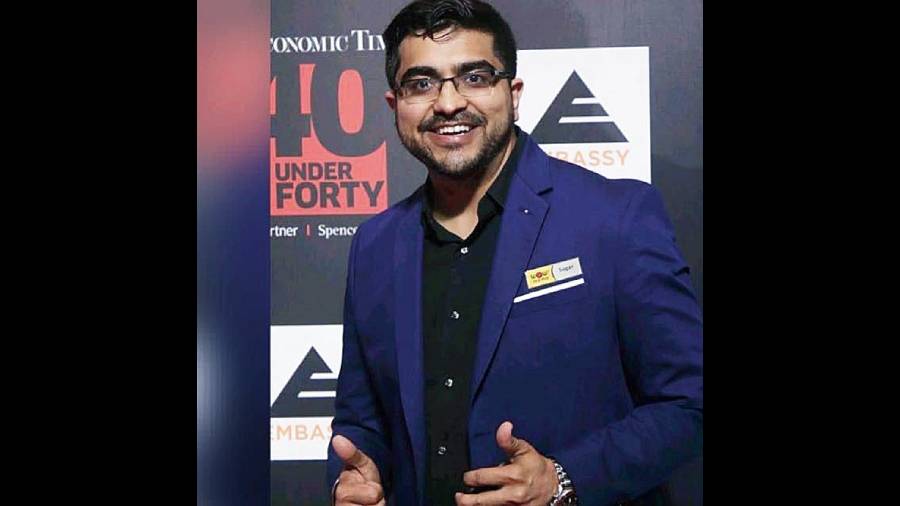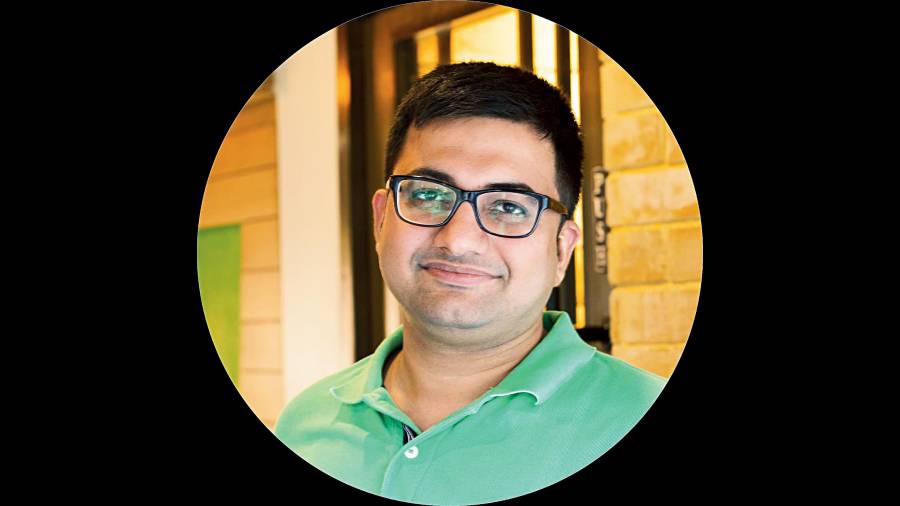Aditya Ladsaria, the co-founder of Chai Break, who has recently taken over as the president of the Kolkata chapter of the National Restaurant Association of India (NRAI), talked to t2 on the new role and the challenges that lie ahead.
After taking over as the president of the Kolkata chapter, what is the immediate priority?
Our immediate concern is to help all the member restaurants and the NRAI members to sort out any kind of problems and revive in terms of sales. We are trying to resolve member problems with regard to operations and commissions. We are trying to touch base with Swiggy and Zomato, who happen to be a very important part of our business now. We also launched a self-ordering app in the lockdown called dotpay. We have listed our menu there and now we get direct orders. We are also coordinating with government authorities and the tourism ministry. We also plan to launch an app that will be called NRAI 1. We have formed five sub-committees — legal, new initiatives, CSR, membership and events.
How will you handle all this with the pandemic still on?
I think we are in the endemic phase. The kind of footfall we are getting at our restaurants is very encouraging. The government has relaxed the norms a bit, which is good for us. We are trying to follow the norms laid out, in our restaurants. All our members have been double vaccinated. We had a big drive at NRAI with the help of the tourism ministry and the Bengal government where the vaccines were provided free of cost. We vaccinated close to 3,500 employees.
What are the things that need to be improved at NRAI?
We want to give value to our members for whatever they are paying as membership fees. We want to look into and solve their problems. We want to grow the chapter, meaning we want to increase our membership base through associates and member restaurants. Currently we are 250 members in the Calcutta chapter. We also want to engage with the government on a variety of issues.
What past experiences will help you now as you take over?
When Sagar Daryani was heading the chapter, I was the co-chapter head and so this has been very routine for me for the past few years. We have put the sub-committees in an independent mode. We want to add value to the entire ecosystem.
What are the lessons learnt from the pandemic phase?
What we have really understood is that post-Covid, all of us have become very lean in terms of business structures. Covid was unimaginable for us in terms of the devastation. But there were positives too, we have survived for a better tomorrow. We have innovated a lot. Our break-even points, our sales volumes, profitability have increased. We are operating at 90-95 per cent of our pre-Covid level sales. We are better than we were before Covid hit.


Sagar Daryani, founder of Wow! Momo
Sagar Daryani, founder of Wow! Momo and a founding member of the Calcutta chapter of the National Restaurant Association of India (NRAI), who was recently appointed vice-president, NRAI, talked to t2 on the responsibilities and how he looks to add value.
Tell us about your stint at the NRAI Kolkata chapter?
It was nice. I was one of the founding members. I was the first person from Calcutta to become an NRAI member at a national level. We then thought of having a Calcutta chapter. I spoke to restaurateurs in Calcutta and built a small team and then we approached the NRAI headquarters in Delhi and in 2019, we founded this chapter. We had an event with more than 1,000 people attending. It was quite exciting to conceive the idea of a chapter and then give it shape, build a team and formulate a structure. For the first six months, we were quite active but then Covid hit but despite that, our activity did not stop. We did a ‘Feed the Needy’ campaign. During the lockdown we served meals to the underprivileged. We kept our members united together, we kept talking to the government.
I am proud to say that we have a very solid team now and I felt it’s important to pass on the leadership baton every two years for someone else to lead with new zeal and enthusiasm. I was asked to continue but I felt that there should be a new team in place. I am also moving into a larger national level role and my support will always be there and someone from Calcutta moving into the national platform will only benefit Calcutta.
What are your achievements as the president of the Calcutta chapter? Any regrets?
We got more than 200 members and 400-plus restaurants on board in the first year to begin with. Also being a very young organisation, the fact that we got acceptance from the state government. The chief minister had called 30 delegates from across verticals for a review meet during the Covid period and NRAI was called.
The only regret was that if Covid had not been there, we could have done a lot more. But personally, in hindsight, I think that we shaped the entire fraternity to be more united as the past 18 months had been very tough.
How did you tackle everything during the pandemic?
For everyone, it had been very different. Adverse times calls for being diverse, being resilient. For someone like us, a national-level start-up, we completely pivoted our business. Pre-Covid, we were seeing 25 per cent online sales, now we are witnessing 70 per cent online sales. Prior to Covid we used to handle 1.5 lakh orders, now we do 8 lakh. Every category has found its own way to revive, survive and grow. We did the highest sales in October and we have been growing at 130 per cent post-Covid.
Quick service restaurants (QSR) were the fastest to revive. Our industry is all about health, hygiene and happiness and people develop a trust factor with the brand. They will order food from a place they trust. In these times, we realised the value of the brand. Covid though has made us believe that there’s so much more that we can do, like we got into packaged food and frozen momos. We have also tried to safeguard employment in the industry since there have been a lot of job losses.
Now that you are the national vice-president, NRAI, how are you dealing with new responsibilities?
Being a restaurateur and a national player, and understanding the sector, how the business has pivoted and how everything has become delivery-centric, we have a clear-cut agenda of what we want to achieve. NRAI has only nine chapters, we want to take this up to 24, which means 24 cities. We want to have a bigger network, a larger force nationally.
What are the future plans?
We need GST input in our sector and we are focused on it. We also want a healthier relationship with companies such as Swiggy and Zomato and grow the network with them. We are working on updating our customer database. We also want to give a shape and structure to NRAI; we are doing a lot of events and trying to keep the members more engaged. We are doing learning sessions. We are also keeping up our talks with the government on various issues. Our sector needs its due recognition. We are working on ease of doing business, compliances, single-window licensing.
